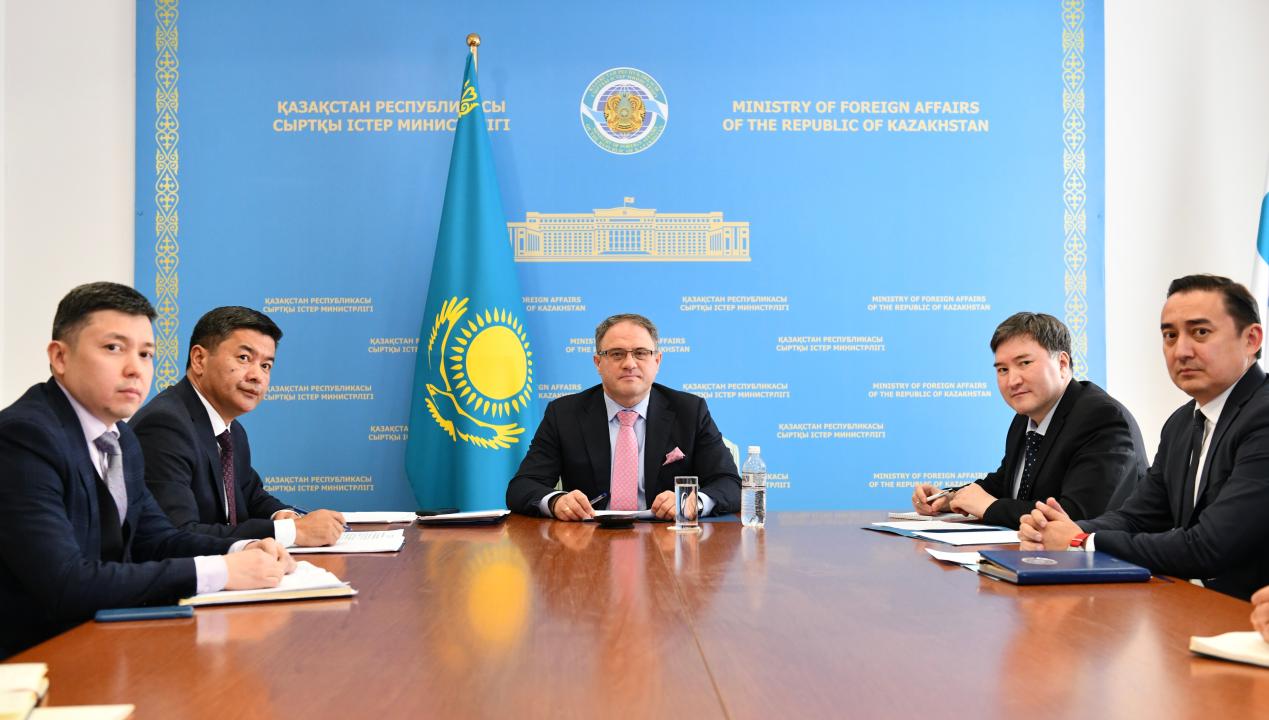ASTANA – Kazakh Deputy Foreign Minister Roman Vassilenko took part in the first ministerial meeting of Central Asia – Group of Seven (G7) countries online on Nov. 8, reported the ministry’s press service.

Roman Vassilenko participates in the first ministerial meeting Central Asia – Group of Seven countries online. Photo credit: gov.kz.
Vassilenko noted the importance of expanding trade ties, increasing the involvement of the G7 economies in the region, and unlocking the potential of the Trans-Caspian International Transport Route in connecting key industrial hubs of Europe and Asia.
The minister reaffirmed Kazakhstan’s commitment to addressing modern global and regional challenges, particularly climate emergencies, food crisis, water issues, and the Aral Sea preservation.
He outlined the country’s plans to reduce greenhouse gas emissions by 15% by 2030 and achieve carbon neutrality by 2060.
Vassilenko urged his counterparts to support Kazakh initiatives to establish a United Nations (UN) Regional Center for Sustainable Development Goals for Central Asia and Afghanistan in Almaty and participate in the Regional Climate Summit under the UN auspices in Kazakhstan in 2026.
Central Asian representatives expressed their readiness to bolster cooperation for further regional development in priority areas.
G7 foreign ministers and High Representative of the European Union (EU) for Foreign Affairs and Security Policy, Vice-President of the European Commission Josep Borrell, said they are committed to the sovereignty, independence, and territorial integrity of Central Asian states following the UN Charter.
They noted the ongoing cooperation between individual G7 members with Central Asian countries through both bilateral and multilateral channels, calling for expanded collaboration in security, infrastructure development, trade, and economy.
The participants emphasized mutual interest in improving connectivity through regional projects within the Partnership for Global Infrastructure and Investment, a major G7 initiative to attract $600 billion for global infrastructure projects by 2027.
The delegates shared views on the impact of geopolitical turbulence on Central Asian countries, discussing challenges associated with global instability and disruptions in supply chains as well as strategies to overcome them.
As an association of leading economically developed countries, G7 comprises Canada, France, Germany, Italy, Japan, the United Kingdom, and the United States, while the European Union also participates.
The G7 countries are Kazakhstan’s major trade and investment partners, accounting for over 20% of the country’s foreign trade balance. Last year, G7 investments in Kazakhstan’s economy increased by 30%, surpassing $8 billion, and trade turnover reached $30 billion.

